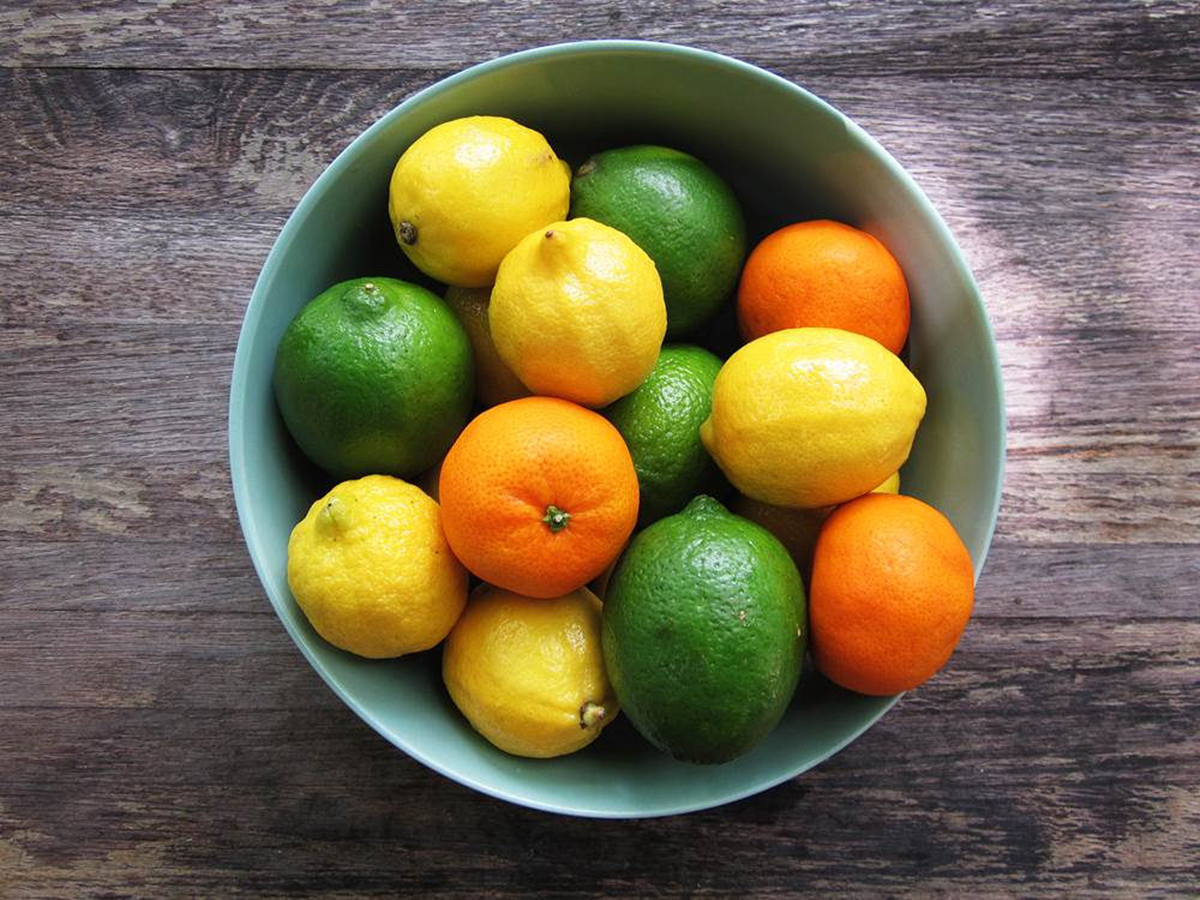Vitamins are vital for heart health. A recent study finds that vitamin C from fruits and vegetables decreases the risk of heart disease, although suipplements don't necessarily have the same effect.
Everybody needs vitamins. They aren't really medicine. They are "food." However, when we don't get enough, some physiological process goes wrong (which is how they got their name, they are vital). When we get all the vitamins we need, our bodies naturally function better.
A recent study took a deeper look at the role of vitamins in heart health. Scientists in Denmark took a look at the differences in heart health among Danes who had different vitamin C levels in their bloodstreams due to differences in their genetics. This study was not just about consuming vitamins. It was also about how the body uses vitamins, and whether certain people need more.

What You Didn't Hear In Health (Or History) Class About Vitamin C
Vitamin C is the best known of all the vitamins. There was a time when it was the only vitamin you could find as a supplement. Vitamin C is well known because it played a role in history. The British (and, as many of the history books in the West leave out, the Japanese) Empires were able to expand when they built great navies. What the British and Japanese admirals knew that the admirals of other navies did not was that sailors did not get scurvy, a disease that could cause teeth to fall out and muscles to fail or even death, when they received fruit (in the British Navy, limes) and vegetables (in the Japanese Navy), in their daily rations.
Healthier sailors meant more victories at sea, and the expansion of their empires.
Exactly what there was in plant foods that kept sailors healthy was not known until the 1930's, when a Hungarian scientist named Albert Szent-Gyorgi isolated ascorbic acid, the compound we have come to know as vitamin C. However, what gets left out of the story is that Dr. Szent-Gyorgi found that vitamin C, while utterly necessary to human health, can't do its job on its own. It needs cofactors that the Hungarian scientist called vitamin P (because he found them in paprika). It isn't enough to get vitamin C. One also needs a variety of antioxidants that are found in real food. No single antioxidant in food, not quercetin or kaempferol or lycopene or any of hundreds of others, is itself vital to human health, so we no longer refer to "vitamin P."
However, eating real food is what enables vitamin C to do its job.
Not Everyone Needs The Same Amount of Vitamin C
Before scientists acquired modern tools of genetic analysis, it was assumed for a few decades that they already knew everything they needed to know about vitamin C. It turns out that genetics can explain some very interesting things about how the body responds to vitamin C.
Researchers have identified a gene called SLC23A1 rs33972313 G that determines how long the body keeps vitamin C in the bloodstream. People who have the gene have on average about 11 percent more vitamin C in circulation, and it turns out that this makes a significant difference for heart health.
What Vitamin C Can Do For Your Heart
The scientists in Copenhagen created a conceptually simple research study to find out if the the presence or absence of the gene that keeps vitamin C levels high makes a difference in health. They compared groups of people who had the gene to groups of people who did not, starting by doing genetic testing on 97,203 people. Of these 97,203 Danes 10,203 had ischemic heart disease, and over eight thousand died during the course of the study.
This arm of the study told the researhers whether the presence or absence of the gene made a difference in getting and surviving heart disease. The researchers also measured bloodstream vitamin C levels in over 3,500 participants in the study to conform that vitamin C levels were determinative, that they weren't just a random indicator when the really important process was something else.

The bottom line of the study was that people who had the gene that keeps vitamin C levels high were 22 percent less likely to develop heart disease. They were not necessarily more likely to be protected from other diseases, although the general trend of the data was that they had a lower risk of death from all causes. The differences in vitamin C levels between the two groups was not a lot, not even the amount of vitamin C that you can eat from eating an apple or an orange. That tiny amount of extra vitamin C, however, seems to protect the heart.
Nothing in this study suggests that anyone needs to run out and buy massive amoiunts of vitamin C supplements. The difference in bloodstream vitamin C concentrations corresponds just to about 15 mg a day. In fact, there is also evidence that getting too much vitamin C (over 3,000 mg a day) can accelerate atherosclerosis.
In very high concentrations, vitamin C becomes pro-oxidant rather than antioxidant. (There are situations in which this is a good thing, such as cancer treatment, but to do any good with vitamin C in treating cancer, one needs to get it by IV. The digestive tract simply cannot absorb enough vitamin C for cancer treatment.) While the researchers only looked at vitamin C, it's important to heed the advice of the discover of vitamin C and get the plant foods that provide the cofactors that recharge the vitamin and keep it active.
How can you use vitamin C for heart health?
- Focus of foods that contain vitamin C. Supplements cannot contain the hundreds of antioxidant cofactors found in foods such as citrus, berries, tomotoes, and raw vegetables.
- If you choose to use a supplement, keep the dosage to 500 mg a day or less, unless you have a specific reason for using more, such as fighting a cold. If you take so much vitamin C that it is causing diarrhea, it's going into the sewer, not into your body.
- The gene that makes a difference in vitamin C and heart health acts by changing how cells respond to both sodium and vitamin C. A "low salt" diet probably is not necessary, but avoiding excesses of sodium (eating salty crisps and lots of canned food every day, for instance) probably also helps.
It turns out that there is one more reason to get your vitamin from food rather than supplements.
Higher vitamin C levels were associated with lower risk of ischemic heart disease, but greater consumption of fruits and vegetables was associated with longer life. If you want a healthy heart and a longer life, eat your veggies and fruit.
- Kobylecki C et al. Genetically high plasma vitamin C, intake of fruit and vegetables, and risk of ischemic heart disease and all-cause mortality: A Mendelian randomization study. Am J Clin Nutr. 2015 Jun. 101(6).
- Photo courtesy of Growing a Green Family via Flickr: www.flickr.com/photos/9174828@N04/13829254954
- Photo courtesy of CarbonNYC [in SF!] via Flickr: www.flickr.com/photos/carbonnyc/2220247643


Your thoughts on this